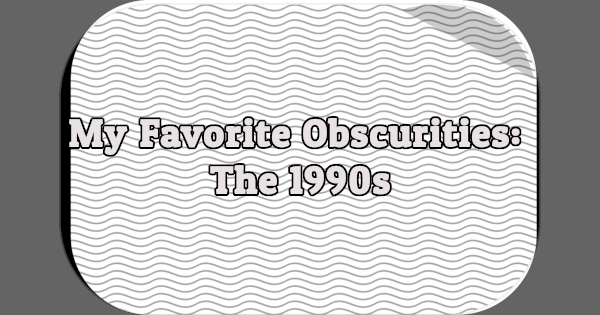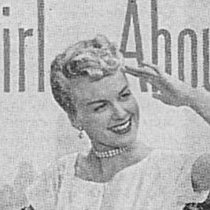I wrote briefly about ABC’s The Outcasts in yesterday’s Q & A but today I thought I’d focus on how the network changed the show following the assassination of Senator Robert Kennedy on June 5th, 1968. Within days of Kennedy’s death, several congressmen called on the television network’s to shift focus away from violence and crime in their programs. President Johnson formed the National Commission on the Causes and Prevention of Violence, chaired by Dr. Milton H. Eisenhower, to examine how violence influenced society.
The networks — and the television industry as a whole — reacted by announcing new policies on violence. Summer repeats involving violent content were pulled while scripts for new and returning fall shows were rewritten. Over the next few days I’ll be discussing how various shows were impacted by the increased scrutiny of violence.
Recall that The Outcasts starred Don Murray as Earl Corey and Otis Young as Jemal David–a former slaveholder and a former slave, respectively–who become bounty hunters following the end of the Civil War. That certainly sounds like the basis for a violent program. Bounty hunting, at least as depicted on television, is a rough and tumble lifestyle. And as a western, The Outcasts would be expected to contain its fair share of shoot-outs and bar fights.
In the September 23rd, 1968 edition of Broadcasting, ABC President Elton Rule revealed that the network (with the cooperation of production company Screen Gems) had decided to rewrite parts of the first ten scripts and re-shoot portions of the six completed episodes of The Outcasts because of content that “might be considered excessive violence in today’s new climate” [1].
I don’t know if that means ten additional scripts after the first six episodes were rewritten or if the scripts for the six completed episodes were drastically — and completely — rewritten. In any event, according to Rule the changes made to the series “cost dearly,” although he doesn’t explain whether he meant it cost a lot of money or if it was creatively painful [2].
Interestingly, in a June 10th, 1968 article in The Los Angeles Times Don Murray was said to be a critic of violence on television; he even occasionally went more than a year without working because he wouldn’t take on a role that “glorified violence” [3]. But Murray didn’t think much of the way the television industry was “indulging” in “soul-cleansing” following RFK’s assassination:
It’s tokenism they’re practicing. There’s no difference between good and bad violence, I happen to think the violence on TV and in movies is destructive, but that must be proven scientifically. Then laws should be passed, just as there’s a law against selling or possessing heroin. If this is censorship, then let it be. I think the League of American Theaters and the three networks should set up rules on violence anyway. [4]
As for The Outcasts, Murray explained that it “may be contributing to the violence on TV, but I believe this is offset by [the] white-Negro relationship” and he revealed that so far he had only felt one scene was too violent and that scene was “fixed” (presumably rewritten to be less violent) [5].
In his review of the premiere, Clay Gowran noted that “‘Outcasts was one of the series partially reshot to exclude unnecessary violence. What is left in the first episode is a fight sequence [short, with background music that is light and gay], deaths of the two bad guys [from a distance without blood], and one shooting [“He only grazed me.”]” [6]. Other reviews made no mention of violence.
The Outcasts was cancelled after its first season. A September 25th, 1969 article in The Los Angeles Times about violence on television stated that “shows like ABC’s Outcasts and NBC’s Outsider, which depended heavily on violence, were scrapped” [7]. However, I think it is far more likely that ABC cancelled the series mostly due to low ratings, with the issue of violence little more than an afterthought.
So what happened to the footage from those first six completed episodes that was excised? Was it thrown out? Probably. Why would the production company save it? Would could it possibly be used for? If The Outcasts were to be released on DVD (which is unlikely) the unused footage would make for an interesting special feature. But in 1968, it would have been all but useless. Unless, of course, someone thought it could be inserted back into the episodes for foreign syndication.
UCLA’s Film & Television Archive has a copy of the premiere episode and notes that it may have “been reworked and reshot for a subsequent episode, The long ride, broadcast on Apr. 28, 1969.” As luck would have it, The Museum of Broadcast Communications has that episode in its collection and the guest casts are totally different. Furthermore, television listings in The Los Angeles Times state that the April 28th, 1969 episode involved Earl and Jemal capturing a man who killed an Apache woman; the pilot episode, on the other hand, saw the two seeking a criminal helping to protect a shipment of gold.
Those are the only two episodes held at the four big television archives. Many others circulate among private collectors. If the series was syndicated internationally, it would be interesting to compare copies of those episodes with copies presumably from the United States.
Works Cited:
2 Ibid.
3 Humphrey, Hal. “Protests Made Him an Outcast.” Los Angeles Times. 10 Jul. 1968: E18.
4 Ibid.
5 Ibid.
6 Gowran, Clay. “TV Today: Andy Leaves Series; Lucy’s Kids Join Show.” Chicago Tribune. 24 Sep. 1968: B19.
7 “TV Adds to Violence but Is Improving, Commission Says.” Los Angeles Times. 25 Sep. 1969: 1.







This was probably a knee jerk reaction as was the networks cleaning up the sexual content and checking the clothing on shows after Janet Jackson’s “wardrobe malfunction”
The fact that the Outcast has not been put out on DVD is a travesty. It’s 2013 and even after Django Unchained there is no discussion of the Outcast DVD release,wow!
My father Robert L. Goodwin wrote a script for the Outcasts. It was called Gideon. Roscoe Lee Browne was the guest star. Roscoe kills a white man in the story. It was very controversial at the time. A reviewer stated that it was considered the first time a Black man kills a White man on television. It was one of my father’s favorite stories. My father was the first Black to write for episodic television. He first wrote 3 scripts for Bonanza.
It was a well-written story.